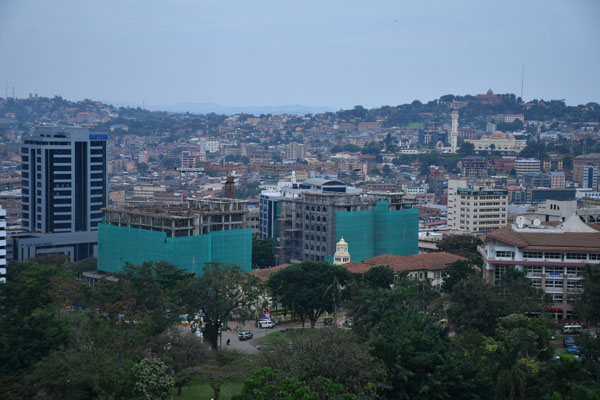Prime
Property rates remain stable despite low economic activity

Stable. Property prices have remained stable among all categories. Photo | Edgar R Batte
What you need to know:
- A Knight Frank report indicates minimal price increases in all property categories despite subdued economic activity.
The property market remained stable in the third quarter of 2022 despite subdued economic growth, a report by Knight Frank indicates.
The report, which measures performance of residential, office, retail and industrial properties, indicates that during the period there was a general increase in demand for all property categories, supported by increased activity in the oil and banking sectors.
For instance, Knight Frank reported an increase in rental enquiries for apartments and bungalows in the prime locations and a notable increase in the uptake of vacant land due to a rise in developer demands eager to meet rising inquiries for affordable housing.
The report noted a modest 2 percent increase in prime average occupancy rates for mostly two and three bedroom apartments, while rental asking prices maintained relative stability.
During the period, there was heightened purchase of distressed properties with buyers taking advantage to “bargain for lower offers”.
The property market remains largely stable but with subdued growth due to low economic activity, characterised by high inflation, volatile foreign exchange and high commodity prices.
Knight Frank also reported that average prime office rent remained stable with occupancies increasing slightly by 1 percent to 93 percent due to demand by oil affiliated companies and banks.
However, the report noted a reduction in lease periods with occupiers opting from shorter lease terms of between one and two years.
Knight Frank also reported increased stability in the retail market due to improved footfall and turnover, which grew by 13 percent and 7 percent, respectively due to growing shopper confidence. However, turnover for general grocery retail remained subdued, owing to the high cost of business triggered by rising inflation.
During the period, there was also a noticeable increase in retail activity in suburbs, driven by subsidised spaces in comparison to the core retail business area in downtown Kampala.
The shift, the report noted, was also driven by preference for newer retail spaces with better display layouts and sizes, ample parking and a shift to online marketing and sales .
A number of retail business have relocated out of the Kampala Central Business District to suburbs due, in part, to rising cost of business and a growing build up of neighbourhood shopping centres in a number of Kampala suburbs.
During the period, Knight Frank noted, demand for industrial space persisted, driven by rising activity in the oil and gas and e-commerce sectors. This was further supported by government’s renewed push for import substitution, borne out of various shortages experienced during Covid-19 related restrictions.
Knight Frank reported strong demand for warehouses, with many prospective occupiers making inquiries in suburban locations such as Namanve due to scarcity in Kampala.
Meanwhile, during the second quarter of the 2022/23 financial year, the Property Index report by Uganda Bureau of Statistics noted that rates in Greater Kampala Metropolitan Area were subdued with Kampala, Makindye and Nakawa registering minimal declines while Wakiso, Kawempe and Rubaga posted increases.




